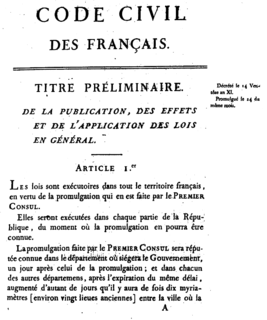 W
WA code of law, also called a law code or legal code, is a type of legislation that purports to exhaustively cover a complete system of laws or a particular area of law as it existed at the time the code was enacted, by a process of codification. Though the process and motivations for codification are similar in different common law and civil law systems, their usage is different.
 W
WA constitution is an aggregate of fundamental principles or established precedents that constitute the legal basis of a polity, organisation or other type of entity and commonly determine how that entity is to be governed.
 W
WAn executive order is a means of issuing federal directives in the United States, used by the President of the United States, that manages operations of the federal government. The legal or constitutional basis for executive orders has multiple sources. Article Two of the United States Constitution gives the president broad executive and enforcement authority to use their discretion to determine how to enforce the law or to otherwise manage the resources and staff of the executive branch. The ability to make such orders is also based on expressed or implied Acts of Congress that delegate to the president some degree of discretionary power.
 W
WIn political science, an initiative is a means by which a petition signed by a certain minimum number of registered voters can force a government to choose to either enact a law or hold a public vote in parliament in what is called indirect initiative, or under direct initiative, the proposition is immediately put to a plebiscite or referendum, in what is called a Popular initiated Referendum or citizen-initiated referendum.
 W
WThe Kuching Declaration is a declaration in English was adopted by the three component parties of the Pakatan Rakyat coincide with Malaysia Day celebrations on 16 September 2012 held at Chonglin Park, Kuching, Sarawak, the declaration pledge and promise will honour the spirit of the Malaysia Agreement of 1963 to the nations and the peoples of the States of Sarawak and Sabah that when they form the next government of the Malaysia they will honour all its pledges and promises in this declaration.
 W
WIn the United States, a state executive order is a directive issued by a governor that regulates operations of the state government and certain aspects of citizen life. Powers of state executive orders are limited by the respective state constitution and/or executive and state law, and are also subject to the provisions of the United States Constitution and any applicable federal law.
 W
WA statute is a formal written enactment of a legislative authority that governs the legal entities of a city, state, or country by way of consent. Typically, statutes command or prohibit something, or declare policy. Statutes are rules made by legislative bodies; they are distinguished from case law or precedent, which is decided by courts, and regulations issued by government agencies.
 W
WA treaty is a formal and binding written agreement entered into by actors in international law, usually sovereign states and international organizations but can include individuals and other actors. A treaty may also be known as an international agreement, protocol, covenant, convention, pact, or exchange of letters, among other terms. Regardless of terminology, only instruments that are binding upon the parties are considered treaties subject to international law. A treaty is binding under international law.